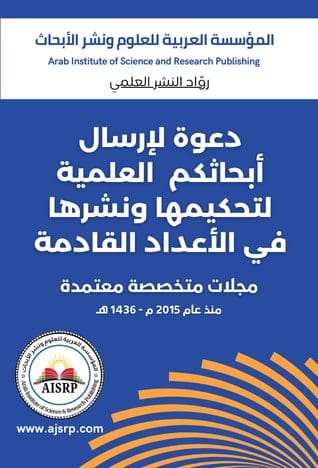Abstract:
Background: Obesity is considered as a risk factor for diabetes, hypertension, dyslipidemia, liver disease, and impaired renal function, which require immediate treatment. Personal weight control plans is one of the important methods for the evaluation of patient readiness to change behaviors and other barriers to weight loss.
Objectives: To explore management of obesity, practice and barriers among primary health care centers physician in Jazan, Saudi Arabia.
Subjects and methods: This is a cross-sectional study carried out from March 2017 to May 2018. Self-administered valid questionnaires were administered to 240 primary health care physicians (PCPs). Data was collected and coded, then analyzed and tabulated using the Statistical Package for Social Science (SPSS version 20, IBM, Chicago, USA).
Results: Males represented 52.9% of the 240 PHC participants. Majority of the PCPs (91%) believed that “Providers can help obese patients achieve a healthier weight.” Nevertheless, only 41% agreed with the statement “I feel confident in assisting patients with weight management.” This demonstrates that even though PCPs believed they were useful in helping patients lose weight, PCPs felt only moderately confident in their ability to manage obesity.
Conclusions: This study showed that the PCPs may not be appropriately educating their patients about the full spectrum of available and effective treatment options for obesity management. This may be due to low perceived effectiveness, safety concerns, and specific patient characteristics required.
Keywords:Obesity, Practice, Barriers, Primary care, physicians
إدارة مرض السمنة: الممارسات والحواجز بين أطباء مراكز الرعاية الصحية الأولية في جازان – المملكة العربية السعودية
الملخص
المواضيع والطرق: تستعرض هذه الدراسة والتي نفذت ما بين الفترة من مارس 2017 إلى مايو 2018م. وتشمل استبيانات صحيحة تدار ذاتيا بين أطباء الرعاية الصحية الأولية (PCPs).
النتائج: شملت الدراسة عدد 240 من أطباء الرعاية الصحية الأولية. ويمثل الذكور نسبة 52.9% من المشاركين. اعتقدت أغلبية الـ(91% من أطباء الرعاية الصحية الأولية) أن “مقدمي الرعاية يمكن أن يساعدوا المرضى البدينين في الحصول على وزن صحي.” ومع ذلك، كانت الموافقة بنسبة 41% فقط على عبارة “أشعر بالثقة في مساعدة المرضى على إدارة الوزن”. مما يدل على أنه بالرغم من اعتقادات أطباء الرعاية الصحية الأولية أنها كانت مفيدة في مساعدة المرضى على فقدان الوزن، ورأى الأطباء ثقة معتدلة فقط في قدرتها على إدارة السمنة.
الاستنتاجات: أظهرت هذه الدراسة أن أطباء الرعاية الصحية الأولية قد لا يكونون على دراية ملائمة بمرضاهم حول مجموعة كاملة من خيارات العلاج المتاحة والفعالة لإدارة السمنة.
الكلمات المفتاحية: السمنة, ممارسات, حواجز, الرعاية الأولية, أطباء
Authors /
Nouf Nasser Ahmed Alzughbi 1
Anas Ellyas Ahmed 2
Sarah Mohammed Awadallah 2
1.Ministry of health || Jazan || KSA
2.Jazan University of Medicine || Jazan || KSA
DOI: 10.26389/AJSRP.N301018 عرض البحث كامل عرض العدد كامل



